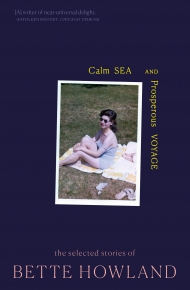Kerstin Ekman for the Nobel
• Dorthe Nors • October 1, 2013

Recently, I was asked by literary friends in the United States whom we Danes were hoping might win the Nobel Prize in Literature. I had no real idea of any consensus, but as happens every year a large number of male culture scribes over the age of sixty seemed to think it should be given to Bob Dylan. Which always makes me wonder why, if the prize really should go to a troubadour, no one ever talks about Leonard Cohen, but that’s just my own personal aside.
And yet, if we were to really choose a Nobel candidate on the basis of who made the deepest impression on our lives when we were young, I for my own part would point to the Swedish novelist Kerstin Ekman (born 1933). The chances of her ever being awarded the prize, however, are small: she walked out on the Swedish Academy in 1989 in protest against its spineless stance on Salman Rushdie’s fatwa, and leaving the Swedish Academy is something you only do in a coffin. Nevertheless, Ekman stood up and walked out, and I’ve always found that such a very admirable thing to do.
I read her masterpiece Blackwater (for which she received the Nordic Council Literature Prize in 1994) when I was twenty-four. After that, I spent years reading everything Ekman ever wrote. In an age in which modernism shunned the compelling story, Ekman retained it and elevated it to new artistic heights. To my mind, she is Swedish at its best: like Selma Lagerlöf with her sense for the epic tale and Ingmar Bergman with her deep, encompassing eye for human nature. Ekman takes you a long way from trendier, narcissistic delvings, but what you get instead is major narrative art founded on such old-fashioned virtues as contemplation and empathy.
Few writers possess the ability to truly change the lives of their readers, even if we’d love to do so. But Ekman changed me and, more than that, she opened the box that became my writing. By studying her, I discovered how to approach the written word. Most writers have their own literary midwives. Ekman’s was the Nobel laureate Eyvind Johnson. It’s a beautiful thought: a young person must first encounter the literature to release the talent. I often ask other writers who opened their boxes, and I’ve yet to meet anyone who wasn’t able to deliver a name immediately: Nabokov, Dostoyevsky, Mann, Kerouac… This suggests to me that the art of writing is inextricably bound up with the art of reading.
The fact that Ekman made such a difference to my own life is not a viable argument for awarding her the Nobel Prize. I’ll happily leave such delusions of grandeur to the aforementioned culture scribes. Besides, this year’s prize went to another Swede, Tomas Tranströmer, an excellent choice, so let this merely be a recommendation from Scandinavia. Dear America: Kerstin Ekman—go, read!
Translated by Martin Aitken
Photograph by Robert Henriksson
Back to Top
Author
Dorthe Nors is the author of five books in her native Denmark, including the story collection Karate Chop, for which she received the 2014 Per Olov Enquist Literary Prize. She lives in Jutland.
Categories
Archive
About
A Public Space is an independent, non-profit publisher of the award-winning literary and arts magazine; and A Public Space Books. Since 2006, under the direction of founding editor Brigid Hughes the mission of A Public Space has been to seek out and support overlooked and unclassifiable work.
Featured Title

"A ferocious sense of engagement... and a glowing heart." —Wall Street Journal
Current Issue

Subscribe
A one-year subscription to the magazine includes three print issues of the magazine; access to digital editions and the online archive; and membership in a vibrant community of readers and writers.
Newsletter
Get the latest updates from A Public Space.
